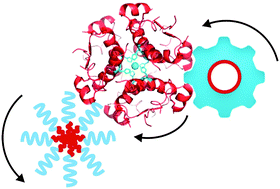Emerging micro- and nanotechnology based synthetic approaches for insulin delivery
Abstract
Insulin is essential for type 1 and advanced type 2 diabetics to maintain blood glucose levels and prolong lives. The traditional administration requires frequent subcutaneous insulin injections that are associated with poor patient compliance, including pain, local tissue necrosis, infection, and nerve damage. Taking advantage of emerging micro- and nanotechnologies, numerous alternative strategies integrated with chemical approaches for insulin delivery have been investigated. This review outlines recent developments in the controlled delivery of insulin, including oral, nasal, pulmonary, transdermal, subcutaneous and closed-loop insulin delivery. Perspectives from new materials, formulations and devices at the micro- or nano-scales are specifically surveyed. Advantages and limitations of current delivery methods, as well as future opportunities and challenges are also discussed.


 Please wait while we load your content...
Please wait while we load your content...